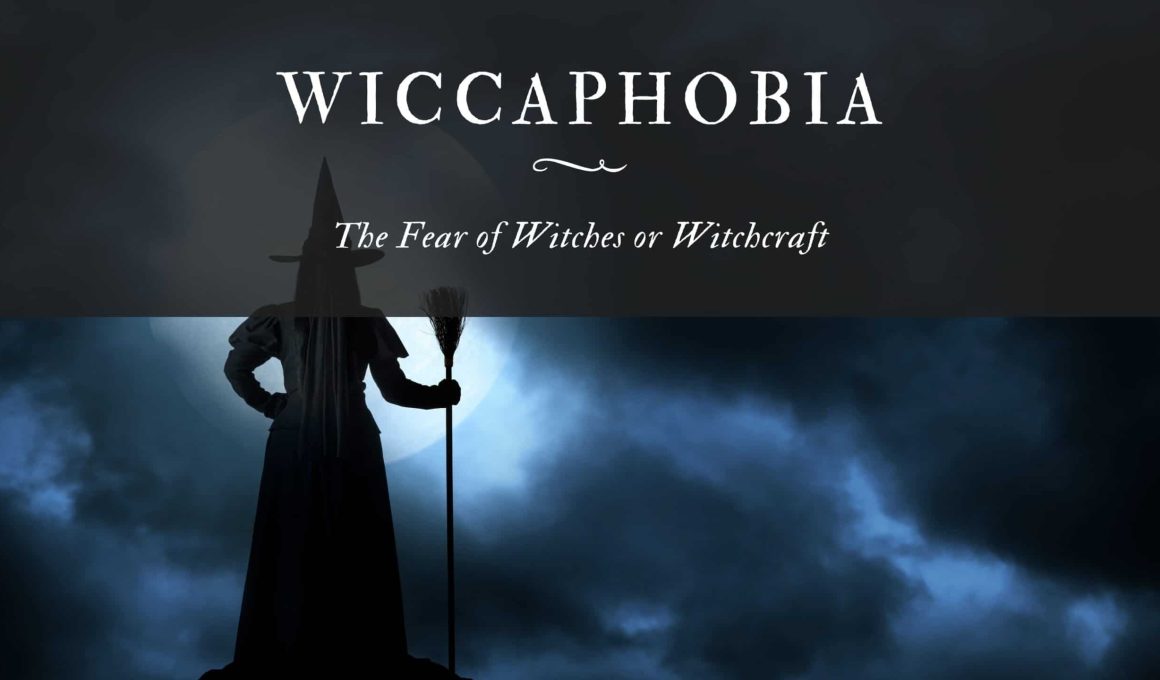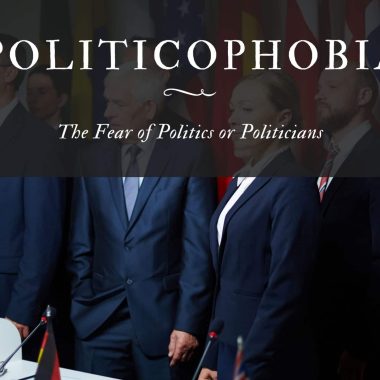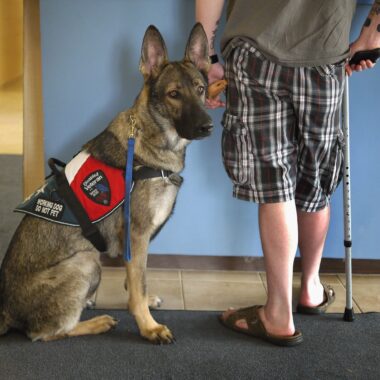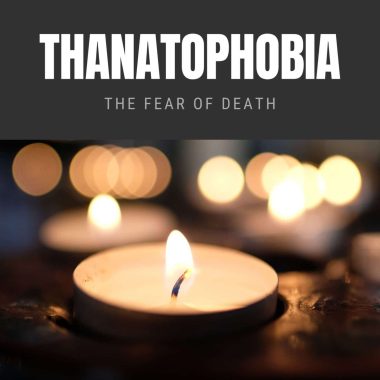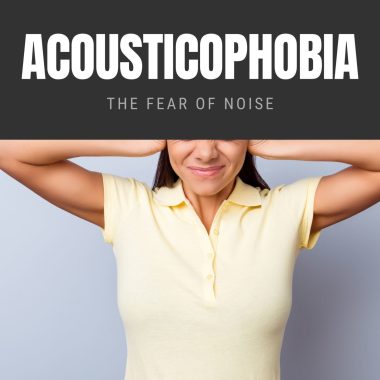Wiccaphobia is one of the most interesting fears to learn about. It is defined as the fear of witches and witchcraft.
Phobias are quite common and must be taken seriously. If you or someone close has a phobia and is not given proper treatment and attention, it might begin to limit the life of sufferers.
In some cases, it can get dangerous to the point of depression and extreme anxiety.
Knowing the best way to manage anxiety and thoughts will help a person dealing with a phobia to have a healthy life or even overcome the fear of all things related to witches and witchcraft. Doing this will also help with managing all phobias in general.
People who suffer from the intense and irrational fear of witches and witchcraft, most times, will deliberately avoid coming into contact with whatever it is that causes them to experience anxiety or fear in the first place.
This might come off as an excellent quick fix to the phobia, but the truth remains that if the phobia is not treated, it may affect a person’s life in more negative ways than one in the long run.
Wiccaphobia is a specific phobia, which means that sufferers are sure of what exactly they are afraid of (in this case, witches and witchcraft).
There have been countless cases where individuals work wiccaphobia develop panic attacks wherever they come in contact with things that trigger their fears. Panic attacks are one of the many physical symptoms that a person dealing with wiccaphobia may experience.
Causes of Wiccaphobia
A person must not necessarily come in contact tact with a witch or have experiences with things related to witchcraft and wizardry before they develop wiccaphobia.
There is no single specific cause for wiccaphobia, and this is also the case with many other phobias.
Nevertheless, the two common causes of wiccaphobia are genetics and a person’s environment. These two factors play quite significant roles in the development of wiccaphobia because every person is exposed to their environment, and we have no control over our genes.
For example, if an individual has a family history of specific phobias, mental illness, or anxiety disorders, they may likely have wiccaphobia if the environment they live in supports or promotes such fears.
Suppose someone is found to have such genetics. In that case, all it may take to trigger full-blown wiccaphobia is a bad or traumatic experience connected to the supposed influence of witches and their activities.
To further explain this, let’s take a look at the possible role of religion, culture, and entertainment (as a part of society) in triggering wiccaphobia.
Religion, Culture, and Entertainment as a Cause of Wiccaphobia
Some religious denominations in some parts of the world are quick to attribute the problems and life challenges that their members face to the activities of witches from their villages.
For this reason, members of such religions are made to fast, pray, undergo a deliverance session, and even avoid their villages.
Essentially, a weak mental state as a result of genetics or previous trauma, combined with sermons about witches being the cause of life challenges and testimonies by others who claim to have been delivered from the powers of witches, is the perfect recipe for wiccaphobia.
Also note that Wicca, itself, is a mainstream religion in the United States of America and some other parts of the world. It is also studied in universities and has a role in societal and religious history.
As for the role of entertainment as a cause of wiccaphobia, we can blame it on Hollywood, Bollywood, and Bollywood for giving the world a more graphical idea of the evils that can be credited to witchcraft.
From teleportation to shape-shifting, telekinesis, and paranormal activities, a clean line has been drawn between how these activities are represented in sci-fi and how they are represented in witchcraft movies and books.
The latter is always more sinister, causing fear even in the minds of those who consume such content (some of whom are children).
Culture and traditions, especially in Asia, some parts of America, and Africa, have always given room for the belief in witches and their activities.
With Wicca itself being an essential part of these rich cultures, it becomes almost impossible to convince people in such environments that their fears are unrealistic.
It is quite challenging to suddenly unlearn everything you have believed all your life, especially if you have seen manifestations of such things (real or doctored).
Although, as mentioned at the beginning of this segment, we do not know the precise causes of wiccaphobia, the consensus amongst most mental health professionals is that environment and genetics play significant roles in the development of wiccaphobia.
Wiccaphobia Can Be Learned
Growing up in a home where parents or other close relatives are in constant fear of witches and their works can cause such behavior to be learned.
Children quickly pick up behavior, beliefs, and even fears from their point of socialization, the family.
Physical Symptoms of Wiccaphobia
People who have wiccaphobia often report panic attacks, and these can be extremely distressing and frightening both for the person and their loved ones.
These symptoms happen suddenly, usually without any warnings or signs.
Below are some of the most common physical symptoms:
- Hot flushes or chills
- Shortness of breath or difficulty breathing
- Sweating
- Trembling
- A choking sensation
- Rapid heartbeat (tachycardia)
- Nausea
- Pain or tightness in the chest
- A sensation of butterflies in the stomach
- Headaches and dizziness
- Feeling faint
- Ringing in your ears
- Confusion or disorientation
- Hyperventilation
- Numbness or pins and needles
- Dry mouth
- A need to go to the toilet
- A rise in blood pressure
- Tightness in the chest/chest pain and difficulty breathing
Psychological Symptoms
In some very severe cases, a person who suffers a panic attack triggered by Wiccaphobia can also have one/or all of the symptoms that follow:
- Feelings of dread
- Fear of losing control
- Fear of fainting
- Fear of dying
- Fear of being harmed or getting a spiritual illness
- Guilt, shame, self-blame
- Feeling sad or hopeless
- Withdrawing from others
- Hallucinations
- Confusion, difficulty concentrating
- Anxiety and fear
- Feeling disconnected
- Anger, irritability, mood swings
In some very rare cases, people experiencing wiccaphobia may experience other phobias.
This is known as a complex phobia and can have detrimental effects on the everyday life and mental well-being of the person.
Treatment of Wiccaphobia
For many individuals who are dealing with Wiccaphobia, the need to seek professional help is usually not prioritized.
There is always the belief that other means, like deliverance and exorcism, can work wonders in helping them get back to leading healthy lives.
It is essential to seek professional help for all phobias as soon as possible. This way, you can quickly return to living a healthy life and understand how to manage your before you become fully recovered.
Never consider replacing professional help with spiritual help or any other remedy that promises to work better.
While most phobias can be cured, there is no specific treatment that is guaranteed to work generally, so sometimes you might need a combination of treatments depending on the severity of your phobia.
It depends significantly on the individual dealing with the phobia and the symptoms they report.
Kindly note that phobias are not to be treated without supervision, so self-medication is not advised.
Below are some of the treatment options available for the management or cure of all phobias, including wiccaphobia.
Talk Therapy for Wiccaphobia
Talk therapy for wiccaphobia includes counseling and might be very useful for the treatment of other phobias.
Talk therapies are advantageous as they are quite laid back and non-intrusive. Here, a person dealing with wiccaphobia and other phobias gets a chance to talk to a proficient and highly trained professional about your feelings, thoughts, and behavior.
There are several types of talking therapy, but they all have similar goals. Below are what they aim to achieve:
- Help the person with a phobia recognize patterns that are unhelpful in the way they act or think and find easy ways to change them if they want to.
- Help the person resolve complicated feelings or find new ways to manage or live with them.
- Help the person make sense of things and better understand themself
- Give them a safe place and time to talk to someone who will not judge them
Talking therapies and counseling are the same in most cases. There is almost no difference between the usage of the terms talk therapy, psychological therapy, psychotherapy, and talking treatment.
(CBT) Cognitive-behavioral therapy
CBT is an acronym that stands for Cognitive behavioral therapy. This treatment method supports the idea that people’s thoughts and perceptions influence their behavior.
Experiencing distress and anxiety are, in some cases, bending and distorting one’s perception of the real world. Cognitive-behavioral therapy aims to identify if what you feel is an accurate representation of reality.
If it is discovered that your thoughts are far from reality, this treatment method employs strategies to challenge and overcome them.
For instance, when someone is dealing with wiccaphobia, with the help of Cognitive behavioral therapy, it becomes possible to realize the unrealistic nature of their fear of witches and the influence of witchcraft in their daily living.
Once that is done, the next step is to find possible ways to fix the challenge.
Medication for Wiccaphobia
Medications may be recommended but should never be taken without consulting a doctor. In general, psychologists and other professionals do not prescribe medicines for overcoming phobias.
Therapies have been discovered to be a more definitive medium for overcoming such fears. However, if need be, some types of medicine will be prescribed as a short-term solution for the side effects of some phobias.
These side effects include depression and anxiety. Below are the three types of medication generally recommended for treating fears.
- Tranquilizers
- Antidepressants
- Beta-blockers
Wiccaphobia Self-help
One of the surest ways to overcome any difficulty like phobia or be prepared for its possible occurrence is to take proper care of oneself.
Knowing how to help yourself is essential, and this may include learning, relearning, and unlearning many things.
Surrounding yourself with people who understand you and support you positively and making reasonable lifestyle changes are some of the self-care alternatives you should consider.
Wiccaphobia is one of the most common phobias in the world, especially in Africa.
Though the magnitude of fear each person experiences differs, its effect on the lives of those who have it can be disturbing. Never avoid seeking professional help.
We hope that you found this article helpful. Your questions and suggestions are welcome, so we appreciate it when you share your thoughts with us by leaving a comment below. We would love to hear from you.
